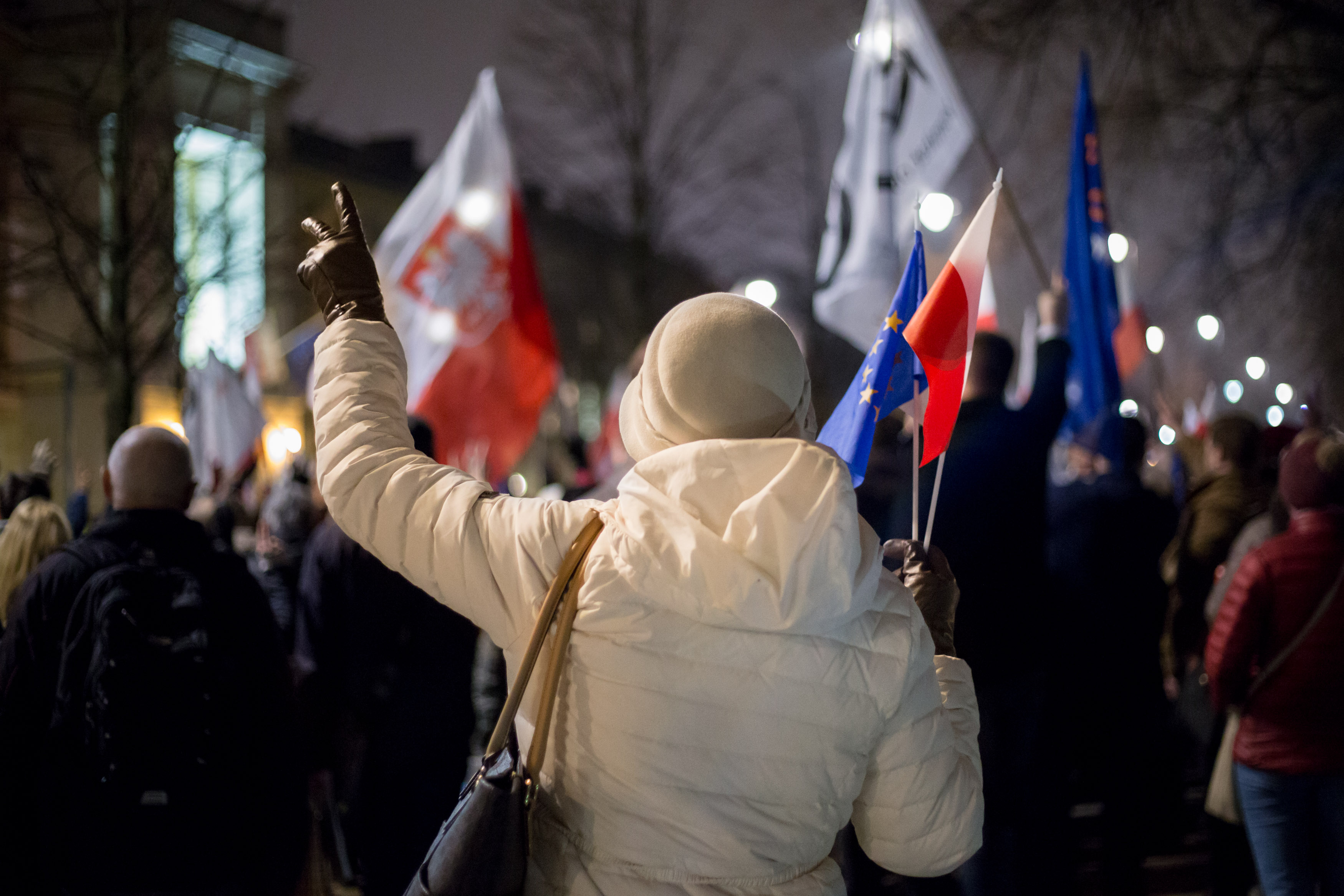Under the banner of Kaczynski
Poland: nationwide rallies to protest against the government led by premier Beata Szydlo, a member of the conservative party Law and Justice. The EU’s objections and the criticism of the Venice Commission (Council of Europe). The quest for a balance between national identity and continental integration

European institutions, still suffering the after-effects of the economic crisis, and engaged on the refugee-emergency front, view Poland with preoccupation. Since the single-party government of the conservative right (Prawo i Sprawiedliwosc – PiS – Law and Justice) took office on November 16 last year, of which Jaroslaw Kaczynski is the undisputed leader, EU institutions and the Council of Europe have placed under observation a set of political and institutional decisions deemed in contrast with the founding principles of democracy and European integration. Moreover, even the international press and authoritative research institutes, along with law and geopolitics scholars, have focused their attention on the great country of Central and Eastern Europe, considered a point of equilibrium between the east and the west of the old Continent, with economy of primary importance and a vibrant and modern social reality.
Objections and protests. The Warsaw authorities were therefore subjected first to objections from the Commission Juncker and, more recently, Poland was the object of an assessment carried out by the Commission of Venice (Commission for Democracy through Law, Council of Europe’s advisory body which includes independent persons from different countries, experts in constitutional law). For now, the critical observations and recommendations of the Commission of Venice remain unfulfilled by the Warsaw authorities. Meanwhile there are growing protests across the Country, signalling an unprecedented political malaise against the national government
Visegrad, the EU and the WYD. It should be noted that some of the objections of the European Union regard Poland’s closures vis a vis the refugee crisis. In fact, Warsaw has decided to take the lead of the so-called Visegrad-group, thereby brushing-up the bygone alliance between Poland, Hungary, Czech Republic and Slovakia against the EU’s migration policies. Thus, while president Andrzej Duda gains the support of Hungarian president Viktor Orban and of the president of the Czech Republic Milos Zeman,
Brussels could launch the second stage of its probe into Poland’s adherence to the rule of law already the first week of April
In fact, past January 19 Polish premier Beata Szydlo debated rule of law issues with MEPs in Strasburg, but she failed to dissipate the doubts of the European Parliament regarding legislative and procedural changes introduced by the executive in office. Jan Olbrycht, MEP of the European People’s Party, said he fears that Poland – that Pope Francis is scheduled to visit at the end of July on the occasion of the WYD – could in the near future remain on the sidelines of major EU decisions, or even suffer economic repercussions in the case of a different approach of European cohesion policies. It should be remembered that to date Poland is the Country enjoying the greatest amount of funding from the EU budget.
A critical interpretation. “Jaroslaw Kaczynski is in fact the sovereign of Poland”, said Piotr Buras, head of the Warsaw branch of the prestigious European Council on Foreign Relations. The president of the Republic Andrzej Duda, along with Prime Minister Beata Szydlo, “do little more than obediently put his ideas into practice”, said the political expert. For Bursas, the leader of the absolute majority party Law and Justice “is firmly convinced that liberal democracy, known to be fragile and vulnerable, is an obsolete political structure in a globalised, complex world. Thus he deems “necessary
a strong government acting efficiently on behalf of the democratic majority
which if necessary will be able to take drastic measures to fulfil the will of the majority without being constantly slowed down by the ‘checks and balances’ of the liberal system. In Buras’ view, the institutional crisis whereby the Polish Constitutional Court came into conflict with government and parliament, unwilling to recognise judicial authority and independence, is “a clear example of Poland’s new course which, according to Kaczynski, will be able to ward off external threats only by not surrendering to Western corruptive processes.” Buras is also deeply concerned about the executive’s restrictions to public media freedom.
The position of the Church. “There is an ongoing political clash in Poland”, the spokesperson of the Polish bishops Fr Pawel Rytel-Andrianik, told SIR. The Catholic Church, a preeminent voice in the Country, is attentively following national developments. On his part the archbishop of Warsaw-Prague, Msgr. Henryk Hoser, said he hopes
In a change of the Polish Constitution and that the constitutional crisis will reach a solution “for the good of the whole nation” through “the recognition of the raison d’état” by of all involved parties,
who should also “bear in mind that the rule of law must serve fundamental values such as freedom, justice, and solidarity.” Monsignor Tadeusz Pieronek, former secretary of the Bishops’ Conference, despite approving many of the reforms of the new government, highlighted that “the changes introduced irrespectively of democratic rules should not be welcomed.” The prelate pointed out that “political leadership must not divide the Country and turn a deaf ear to the appeals of civil society.”